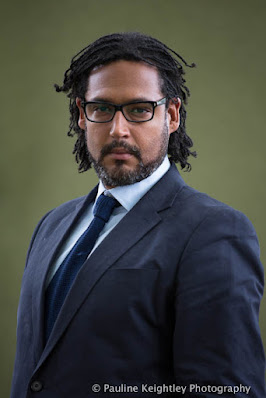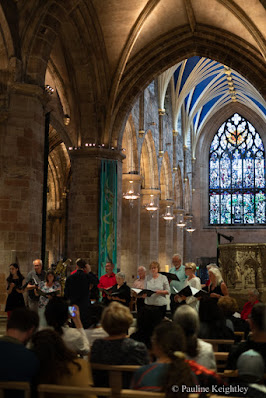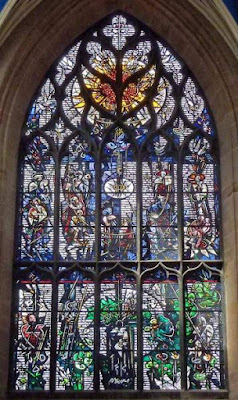In 2015, British historian Peter Frankopan changed the way we think about the historical relationship between East and West, with his book The Silk Roads: A New History of the World. The book shifted focus from the West towards Eastern civilisation, religion, and industry, and opened up research on previous eras of exchange and collaboration.
The Silk Roads was a ground breaking book that explored the significance of the east on the development of ideas and trade: and shifted views of global power and on the history of our great civilizations. His new Silk Roads book is his updated version.
Peter Frankopan, who is professor of Byzantine studies at Oxford university gave an energetic and enthusiastic talk, that at times also jumped with too much information overload and was not a seamless narrative. He praised the historic beauty of Edina.
His book explores the spread of people, trade and ideas & religion (Buddhism, Judaism, Christianity, Islam) – across Persia before developing in the Mediterranean. He places the centre of the world further east, beyond Mesopotamia, and the Caucuses, in Iran and the “stans” - and not the Mediterranean. He spoke of the great city of Constantinople, now known as Istanbul which was the centre of the Roman empire. Also other great cities of Babylon and Mesopotamia. And the Mongol empire. The ancient Dunhuang at the British library.
The Silk roads was first coined in 1871 by German geographer, Ferdinand van Richthofen. Christianity spread and Islam too. Science and philosophy spread from east to west long before the voyages of Columbus.
He stated that the exploration of the silk roads was started by Alexander the Great who travelled across the Persian empire. He headed east to the home of the great cities and people and he brought the Greek culture to Indus valley and the Buddha was given form. Two thousand years ago Chinese silks were worn by the Carthaginians and Iranian elites used Provencal pottery. There were Indian spices in Afghan and Roman kitchens.
He challenges ‘euro centrism’ with fascinating stories of the rise of globalization. In 1492 there were the European voyages of discovery of the west outwards with the exchange of people, goods and ideas. In our European museums layouts we display firstly Egypt, Greece, and Rome and therefore view the narratives of civilization as centre around the Mediterranean. The Silk Roads is about how the Pacific connects to Britain and Europe. Trade changes history and access to rare metals and also caused the spread of disease.
However he ignores the achievements of the Far East – such as gunpowder, mechanical clocks and compass. Chinese paper making was brought to Persia (Chinese block printing 6th century) and movable –type printing press Pi Sheng 1040. And India – science, maths, astrology.
Are the Silk Roads now only a bridge between the geopolitical powered of the west - Europe, North America, and to the emerging east of China and India? There is also no mention of the European enlightenment or the thriving life around the North Sea.
India has to choose between Russia and Europe.
Russia is the biggest supplier of refined fuel,
Shanghai, top 20 ports many into Africa.
UAE investing in Africa.
Peter Frankopan is a British historian, writer. He is a professor of global history at Worcester College, Oxford, and the Director of the Oxford Centre for Byzantine Research. He is a fellow of the Royal Asiatic Society. He is best known for his 2015 book The Silk Roads.















.jpg)
.jpg)




.jpg)
.jpg)

















